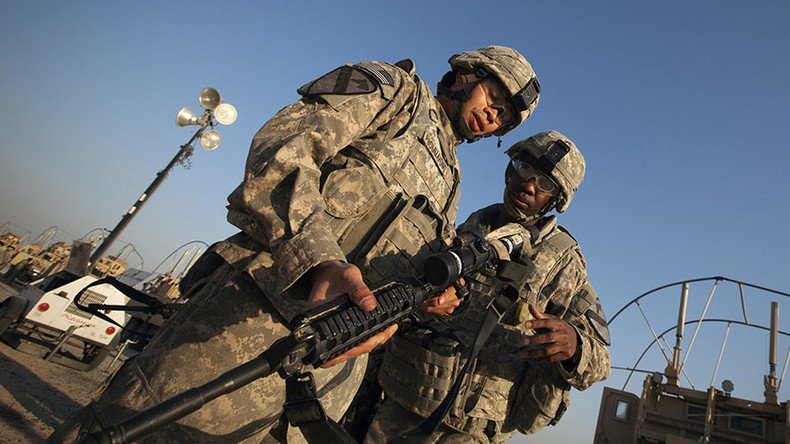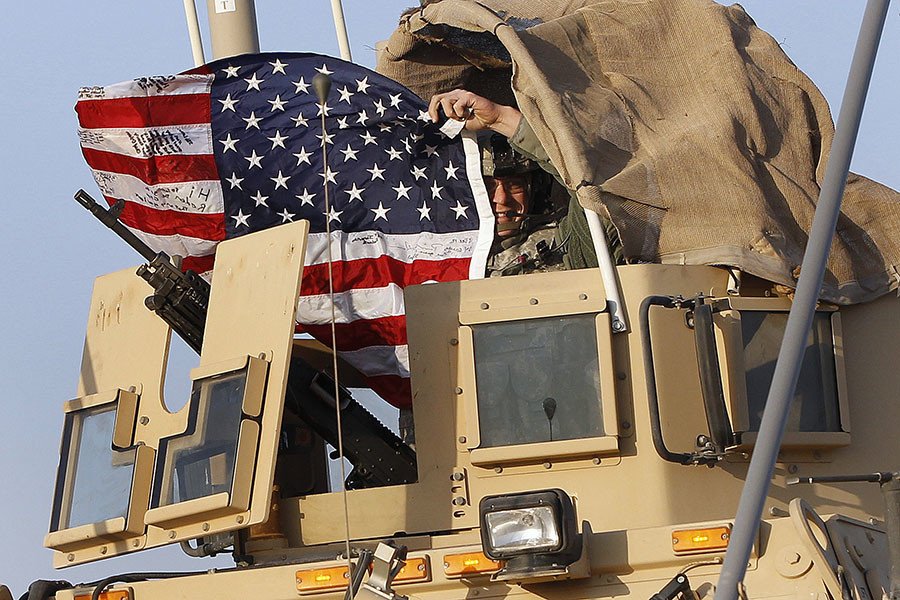'Pentagon's anti-ISIS bases network - head-scratcher and overreaction’

The American strategy of the past 12 years to rely on special forces has failed as the number of terrorists has gone up, says former CIA official Larry Johnson. The notion that these forces are some magic solution to defeat terrorism is absurd, he added.
The US Department of Defense has come up with a plan to build a network of military bases in Africa, Southwest Asia and the Middle East in expanding its fight against terrorism, The New York Times reported. The initiative was proposed to the White House by senior military officials during a debate on other terrorist groups pledging allegiance to Islamic State. The bases are to serve as a hub for Special Operations troops and intelligence operatives who will be conducting operations in the future.
READ MORE: Basic needs: Pentagon envisions a chain of ‘anti-ISIS hubs’
RT: What's your take on that idea? Is it a sensible option or an overreaction?
Larry Johnson: I would classify this both as a head-scratcher and an overreaction. Number one; there are already bases out there that are being used in certain places. Number two, to expand bases implies that you are going to expand special operations forces. Candidly, there is a reason you call them special operations forces because not everybody can do it. So, it is going to somehow suppose that you are going to be immediately be able to boost those numbers which, I think, is highly unlikely. The third, more important point is that the strategy that has been employed, that has relied almost exclusively on special operation forces over the last twelve years in my view has largely failed. Why do I say it failed – if you look at the number of terrorist attacks, the number of terrorist casualties, or casualties inflicted by terrorist groups, as well as the number of countries in which…militants…are operating, those numbers are going up, they are not going down. So, the notion that special operations forces are some sort of magical solution, for defeating this threat - I think is frankly absurd.
RT: What sort of the reaction do you think the regions around the world which will be near these bases will give this sort of news?
LJ: Depends on how much money is involved. Certain countries may be willing to allow the bases to be set up. I think you get to the more touchy issue of what kind of rules of engagement and operations would be allowed. So, for example, if you are going to set a base up in Niger, do you allow drones operating from that base to go into Mali from Niger? This can inadvertently create some cross-border tensions between nations that may not necessarily like each other or may not necessarily have the closest of relationships. So, all of this things, I am sure, from the DoD [Department of Defense] standpoint, it sounds great, but I don’t think they fully thought through all the diplomatic complexities that are certain to arise if they try to go down this road.
RT: This plan suggests a long-term strategy. Does it mean that the Pentagon expects Islamic State to be here for the long-term, too?
LJ: It is easy to draw that conclusion based on that comment which, to me again, is absurd. You trace the actions of relying upon special operations forces since 2001. And that’s been laid out in a lot of detail in a book by Sean Naylor entitled ‘Relentless strike’. When you look at that activity, it really has not achieved a quelling of this terrorism, it has, in fact, expanded it. So, to put this plan for a long-term sort of tells me that they don’t have a clue what they are doing and they certainly have no strategy for defeating them.

RT: Do you think this plan will become a reality? Will there be much opposition to it?
LJ: It wouldn’t surprise me if it becomes a reality in terms of allocating money so people will say: “Hey, look, we are doing something.” But I think the bigger issue comes in trying to find where these bases actually will be and how they will operate. I recall the drama that was unfolding in trying to find a base in Africa for the US Africa Command. And that is now based in Stuttgart, Germany. So, they simply took one of the bases that formally have been used by the European command in Europe and allocated that to be used by Africa. That’s why there’s these sayings that people can talk a good game but when it comes to actually having to put a physical base in place and then allow operations from that base, the diplomatic complexities can certainly slow down or even stop it.
The statements, views and opinions expressed in this column are solely those of the author and do not necessarily represent those of RT.












